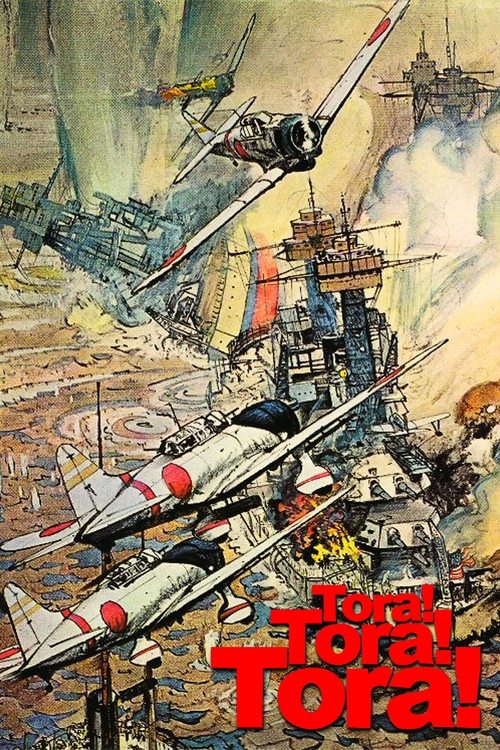
Title: Tora! Tora! Tora!
Year: 1970
Director: Toshio Masuda
Writer: Hideo Oguni
Cast: Martin Balsam (Admiral Husband E. Kimmel),
S? Yamamura (Admiral Isoroku Yamamoto),
Jason Robards (General Walter C. Short),
Joseph Cotten (Henry L. Stimson),
Tatsuya Mihashi (Commander Minoru Genda),
Runtime: 144 min.
Synopsis: In the summer of 1941, the United States and Japan seem on the brink of war after constant embargos and failed diplomacy come to no end. "Tora! Tora! Tora!", named after the code words used by the lead Japanese pilot to indicate they had surprised the Americans, covers the days leading up to the attack on Pearl Harbor, which plunged America into the Second World War.
Rating: 7.148/10
Echoes of Precision: The Measured Pulse of Tora! Tora! Tora!
/10
Posted on July 25, 2025
Tora! Tora! Tora! (1970) is a cinematic anomaly, a war film that prioritizes procedural clarity over emotional bombast, delivering a meticulous reconstruction of the Pearl Harbor attack. Directed by Richard Fleischer, Toshio Masuda, and Kinji Fukasaku, the film’s strength lies in its dual-narrative structure, presenting both American and Japanese perspectives with a near-documentary rigor. This approach, bold for its time, avoids vilification, offering instead a sobering study of miscommunication and hubris on both sides. The screenplay, crafted by Larry Forrester and Japanese writers Hideo Oguni and Ry?z? Kikushima, is a triumph of restraint, weaving historical detail into dialogue that feels authentic without being didactic. It’s not about heroes or villains but systems flawed, human, and prone to catastrophic oversight.
Cinematography, under Charles F. Wheeler and Osamu Furuya, is the film’s beating heart. The aerial sequences, shot with real planes and minimal effects, pulse with visceral clarity, capturing the chaos of December 7, 1941, without romanticizing it. The camera’s unblinking gaze whether on the serene Hawaiian sunrise or the smoke-choked aftermath grounds the viewer in a reality that feels both distant and immediate. However, the film’s insistence on historical fidelity occasionally stifles its emotional resonance. The ensemble cast, including Martin Balsam and S? Yamamura, delivers competent but understated performances, reflecting the film’s focus on collective failure over individual drama. This choice, while intellectually admirable, can leave audiences yearning for a deeper human connection.
The score by Jerry Goldsmith is subtle yet haunting, its understated brass and percussion mirroring the film’s disciplined tone. It avoids the sweeping melodrama typical of war epics, instead amplifying the tension of inevitability. Location shooting in Hawaii and Japan adds authenticity, with Pearl Harbor’s naval bases and Tokyo’s bureaucratic offices rendered in stark, unadorned detail. Yet, the film’s pacing falters in its middle act, where the meticulous setup of military logistics can feel repetitive, testing viewer patience before the climactic attack.
Tora! Tora! Tora! is not a film that seeks to thrill or sermonize. Its brilliance lies in its refusal to sensationalize history, offering a clear-eyed portrait of a pivotal moment. For those willing to engage with its deliberate pace, it remains a masterclass in historical storytelling, flawed but unforgettable in its precision.
0
0
